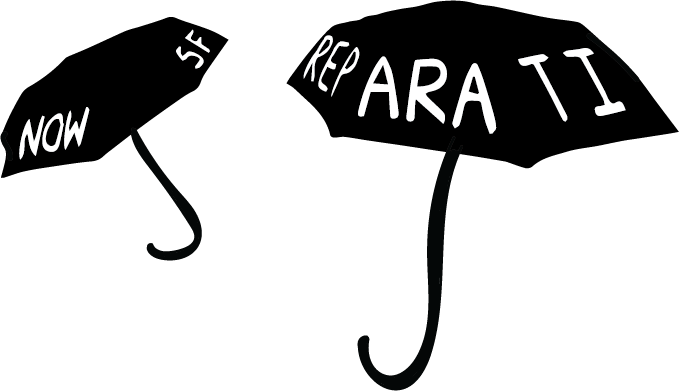A look into San Francisco’s drafted reparations plan
Although other cities in the United States have reparations plans in motion to combat systemic racism, San Francisco’s current drafted plan is the most profitable for eligible Black people nationwide. “The draft reparations plan, released in December, is unmatched nationwide in its specificity and breadth,” wrote The Guardian. Black San Franciscans would be eligible for payments up to five million dollars and large-scale financial guarantees such as relief of personal debt and discounted prices on San Francisco housing.
While media attention ramps up for this high-priced plan, San Franciscans are starting to question how it will be funded, and whether it will successfully create tangible results for Black residents.
The process of crafting San Francisco’s reparations plan started in 2019 with the San Francisco chapter of the National Association of the Advancement of Colored People (NAACP). They proposed that the San Francisco Board of Supervisors create a reparations plan to pay for the displacement of Black San Franciscans caused by redlining, gentrification and systemic racism.
San Francisco’s current draft for a reparations plan was created by members of the African American Reparations Advisory Committee (AARAC), a group that the Board of Supervisors appointed in May of 2021. A final committee report from the AARAC is due this June, and will then be voted on by the Board.
Some of the recommendations from this drafted reparations plan include: payments of five million dollars to every eligible Black adult, guaranteed annual incomes of at least $97,000 for 250 years, condos for only one dollar buy-ins and the clearing of all personal debt. To be eligible for these reparations, one must have identified as Black/African American on public documents for at least 10 years and be 18 years or older. Additionally, one must meet at least two of eight ancestral history or racial identity criteria.
There has been push back to this reparations plan due to financial feasibility. “I support the concept of reparations and I think it is something that we need, but it is just financially unrealistic for San Francisco right now,” Jin Valencia-Tow ‘25 said in an interview with The Urban Legend. “[This is the case] especially given that we’re in a $700 million budget deficit.” Valencia-Tow is referring to San Francisco’s projected $728 million general fund deficit for the next two fiscal years.
Although there is no estimated cost of this drafted reparations plan, it is a multi-million dollar project. Additionally, Stanford University’s Hoover Institution, estimates that this draft of the reparations plan would cost each non-Black family in San Francisco approximately $600,000.
While some San Franciscans doubt the financial feasibility of the plan, others are in support of it. “What individuals are owed and what is realistic for the budget are two different conversations,” said Vice Chair of the AARAC Tinisch Hollins in an interview with The Urban Legend.
“The amount that African American individuals are owed to repair harm is for the government to determine, not for the community or society at large to debate over,” said Hollins. “I think the important thing is to not get caught up on any one of the recommendations. It’s really all of the ways, all of the 111 ways, that [the] report is calling for the city to repair the harm done to Black San Franciscans.”
Some Urban students have echoed this support of the drafted reparations plan. In an interview with The Urban Legend, Jaxon Howard ‘25, a co-leader of Black Student Union (BSU) said, “I do support the reparations plan. It is important for San Francisco to set this precedent because I feel like San Francisco is one of the few cities where this could actually happen.”
Some who are in support of this reparations plan also think that there are other cities in the United States where a reparations plan would be more beneficial. Howard said, “We do not technically have a large African American population. So I think that while it is helpful in San Francisco, there are tons of cities that need it, possibly more than San Francisco does.”
Hollins emphasized Howard’s statement, as they both want reparations to expand across the country. “I think the way to look at this is that the conversation around reparations is going to continue picking up momentum,” said Hollins. “There are new cities and new states that are exploring reparations processes coming on board. Just about every month we’ve seen them double since San Francisco started its process.”
When referencing San Francisco’s drafted reparations plan and the process ahead, Hollins emphasized her prior point. “This is not about a five million claim for an individual,” she said. “What I hope that the public … will do is not trivialize or minimize what the Black community is calling for in terms of the ways to repair harm.”


